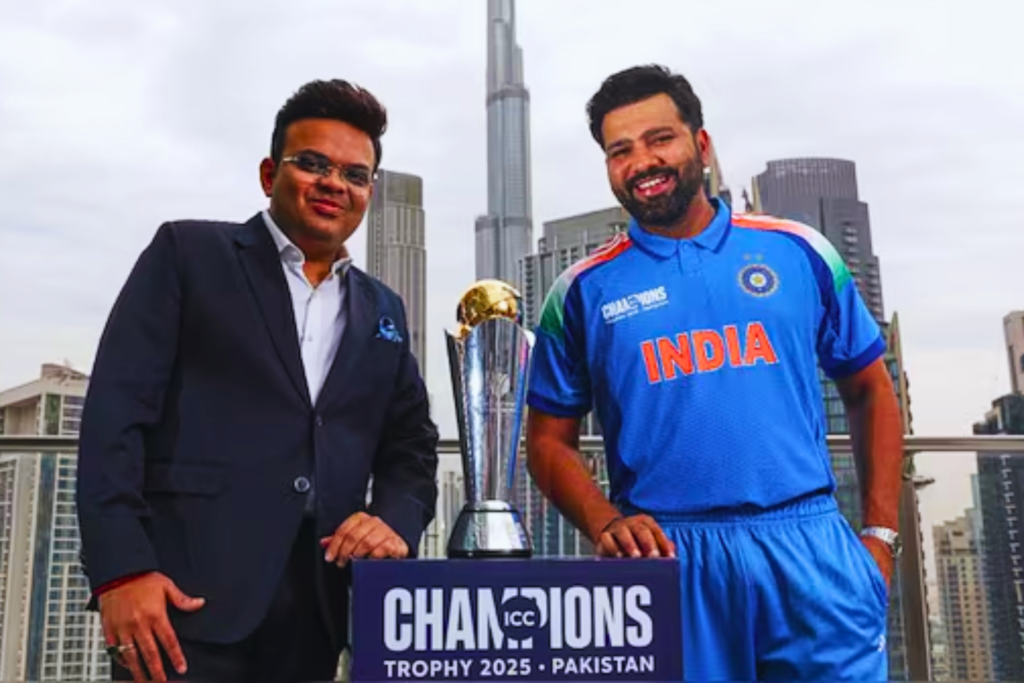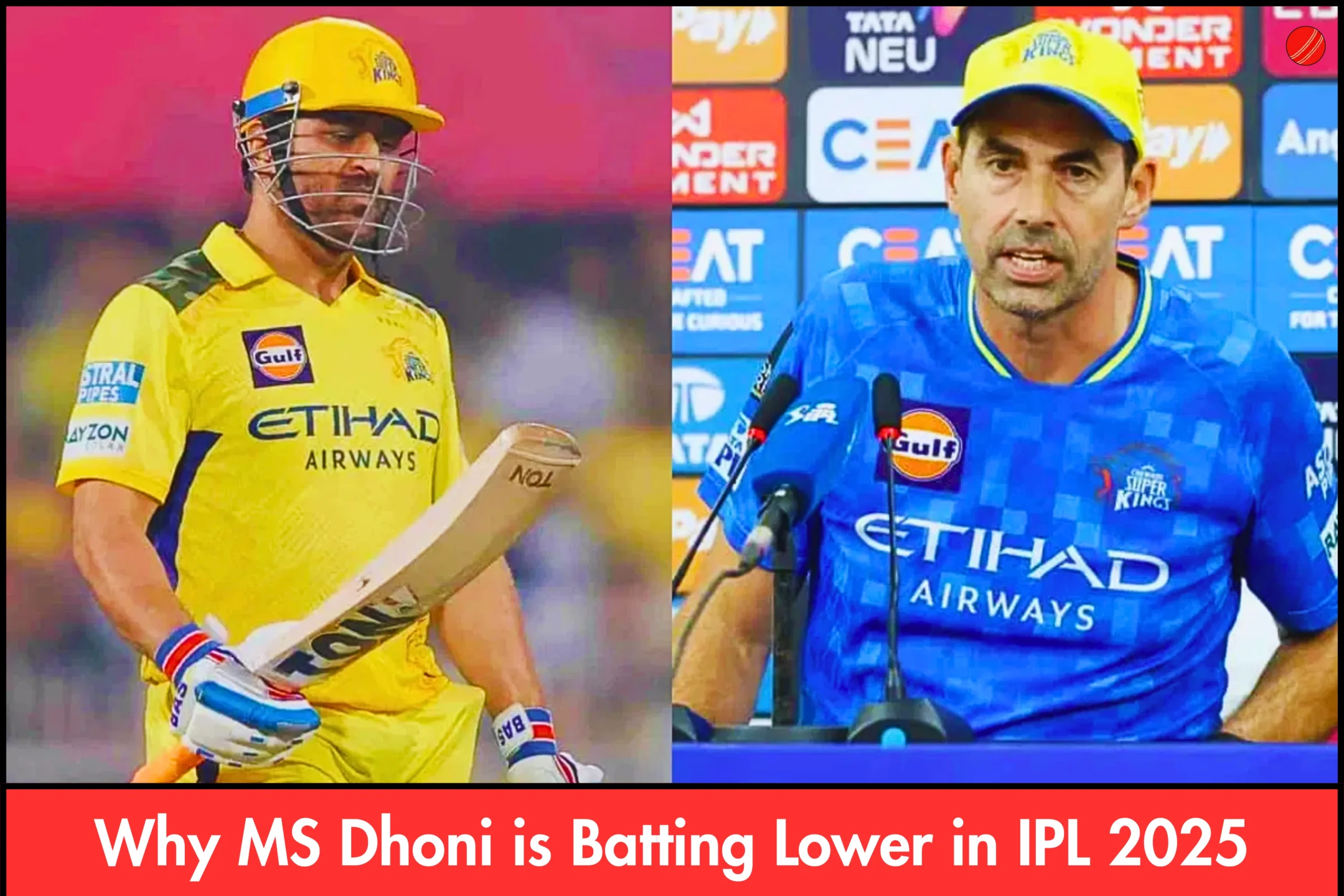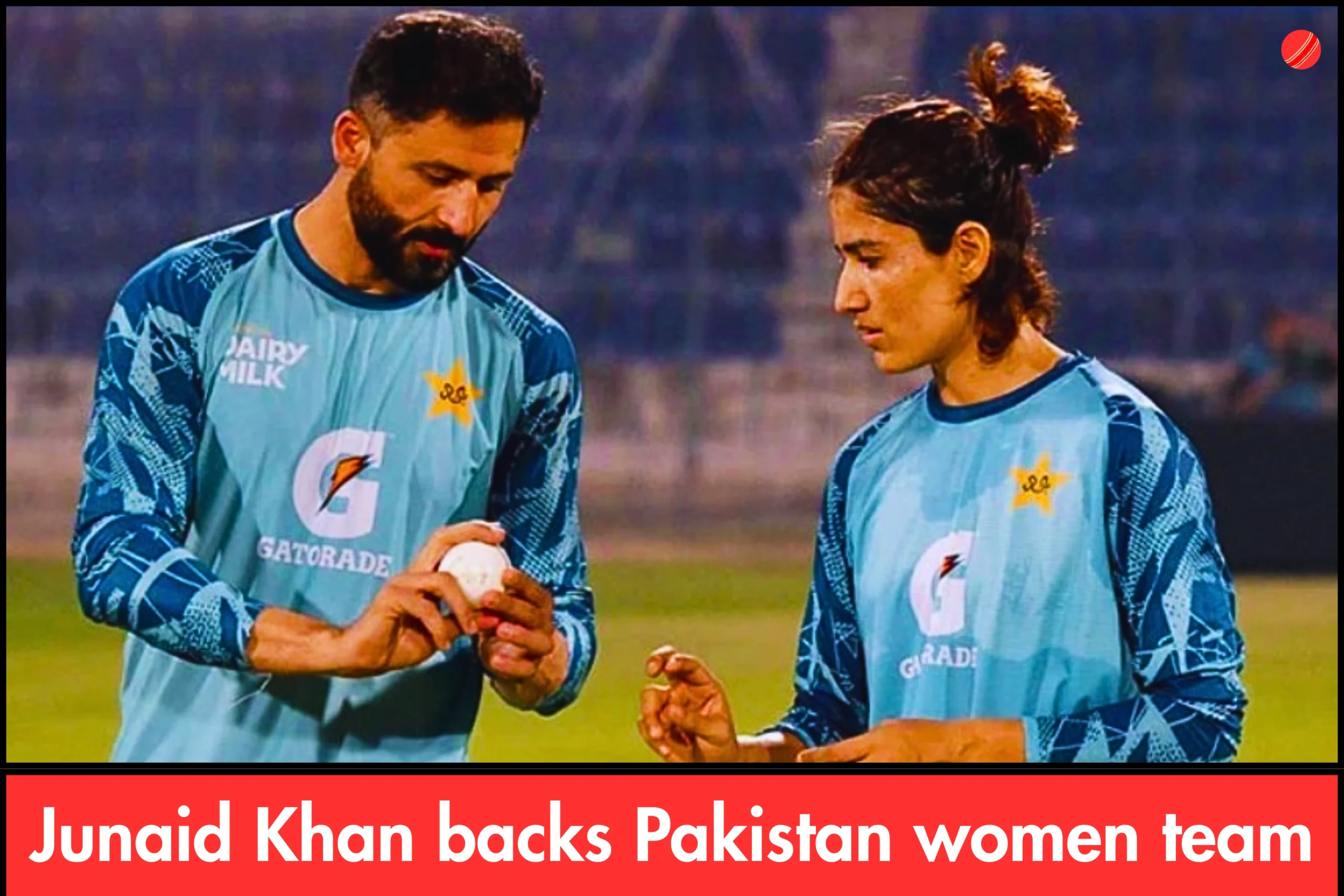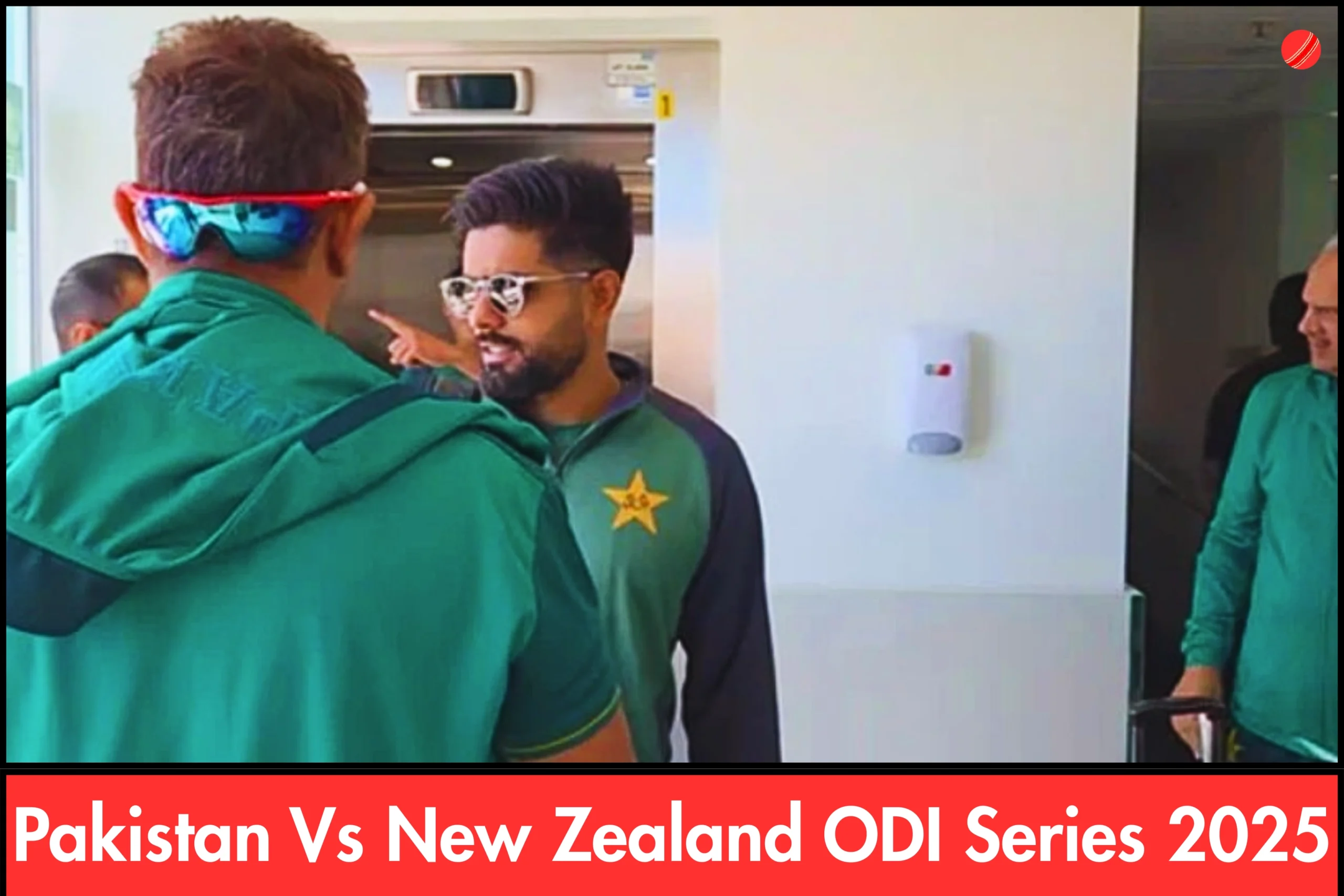Controversy After CT 2025
The Champions Trophy 2025 ended in a thrilling finale on March 9, with India securing a hard-fought victory over New Zealand at the Dubai International Cricket Stadium. The Men in Blue lifted their third Champions Trophy title, adding another glorious chapter to their cricketing history. However, what should have been a moment of celebration and global unity turned into controversy as the Pakistan Cricket Board (PCB) found itself embroiled in yet another dispute with the International Cricket Council (ICC).

The Controversy After CT 2025 erupted during the post-match trophy presentation ceremony, where top officials from ICC, the Board of Control for Cricket in India (BCCI), and New Zealand Cricket (NZC) were present on stage. Strikingly absent was any official representation from the host nation, Pakistan. This perceived snub led the PCB to lodge an official complaint, igniting a debate over ICC handling of ceremonial protocols and respect for host nations.
Controversy After CT 2025
The Trophy Presentation Controversy
The absence of PCB representation on stage during the Champions Trophy 2025 trophy presentation was the primary point of contention. While the ICC chairman Jay Shah, BCCI president Roger Binny, BCCI secretary Devajit Saikia, and New Zealand Cricket CEO Roger Twose graced the podium, Sumair Ahmed, the chief operating officer (COO) of PCB and the tournament director, was conspicuously left out. This omission sparked outrage within PCB ranks, leading to an official protest against the global governing body.

PCB Chairman was unable to attend the event due to personal commitments, leading the Board to send Sumair Ahmed in his stead. However, the ICC, adhering to its longstanding protocols, did not invite him on stage, triggering Pakistan discontent. A PCB source revealed that a formal complaint had been submitted to the ICC, branding the incident as unacceptable and disrespectful to Pakistan role as the host nation.
ICC Justification and Protocols
The ICC quickly responded to PCB complaint by citing procedural norms that have been in place for years. According to a source from the governing body, there exists a clear protocol for the trophy presentation ceremony, which only includes ICC office bearers, CEOs, chairpersons, vice-chairpersons, or secretaries of cricket boards. Sumair Ahmed, being an employee of PCB and not an office bearer, did not meet the criteria for inclusion on stage.
The ICC source further elaborated that even ICC CEO Geoff Allardice was not on stage, reinforcing that the protocol was not selectively applied to PCB alone. The official also pointed out a precedent, mentioning that Gaurav Saxena, a former tournament director for the Asia Cup, was not included on stage for its final presentation either. These explanations, however, did little to pacify PCB.
PCB Strong Reaction and Demand for Apology
Despite ICC clarification, PCB remained adamant that the global body handling of the matter was unfair. A PCB official dismissed the explanation as illogical, asserting that excluding Pakistan representative from the stage undermined the country role as the official host of the tournament. The Board deemed ICC response as a blatant disregard for their contributions, escalating their protest by demanding a formal apology and an assurance that such incidents would not occur again.
PCB insisted that the ceremony should have reflected Pakistan position as the host nation, regardless of internal ICC protocols. They argued that even if Sumair Ahmed was not an office bearer, he was still the highest-ranking PCB official present at the event and should have been given due recognition. The Board warned that failure to rectify this perceived injustice could lead them to escalate the matter to the ICC Board of Governors.
The Growing Tension Between PCB and ICC
This controversy is yet another episode in the historically strained relations between PCB and ICC. Over the years, PCB has often voiced concerns over what it perceives as biased treatment in ICC decisions, particularly in favor of more influential boards like BCCI. This latest incident further fuels the narrative that PCB is not accorded the respect it deserves within the global cricketing community.
Controversy After CT 2025
The incident also underscores the wider challenges of international cricket governance, where host nations often feel overshadowed by powerhouses like India, England, and Australia. With the PCB now pushing for a public apology, the issue threatens to escalate further, potentially straining Pakistan relations with ICC ahead of future tournaments.
Implications for Future ICC Events
The fallout from this Controversy After CT 2025 raises critical questions about how ICC conducts its ceremonies and treats host nations. If PCB complaint gains traction, ICC may have to revisit its protocols to prevent similar disputes in the future. A more inclusive approach, wherein a representative from the host nation is given formal recognition on stage, could be a solution to avoid such friction.
This incident also serves as a reminder of the political undertones that often accompany cricket administration. Given the growing influence of BCCI in ICC matters, other boards, including PCB, have grown increasingly vocal about perceived imbalances in decision-making. Whether this latest dispute leads to tangible changes remains to be seen.
The Bigger Picture: Cricket and Diplomatic Relations
Beyond cricketing administration, this Controversy After CT 2025 could have wider implications on cricketing relations between India and Pakistan. The two nations share an intense rivalry, both on and off the field, often influenced by political tensions. While ICC has tried to maintain neutrality, instances like this fuel suspicions of favoritism, particularly towards BCCI.
Pakistan demand for an apology also adds pressure on ICC to maintain credibility as an impartial governing body. How ICC handles this issue could set a precedent for future tournaments and how host nations are treated in the global cricketing landscape.
What Happens Next?
With PCB awaiting a formal response from ICC, the cricketing world is watching closely. If ICC refuses to issue an apology or clarification, PCB may escalate the matter to the Board of Governors, potentially creating a larger rift within cricket administration. Alternatively, ICC may attempt a diplomatic resolution by offering PCB an assurance of more inclusive policies in the future.
The coming weeks will be crucial in determining the final outcome of this dispute. If PCB protest gains momentum, ICC may have to rethink its approach to tournament ceremonies, ensuring that host nations receive appropriate recognition. However, if ICC stands firm on its protocols, PCB will have to decide whether to push further or accept the status quo.
FAQs
Why did PCB file a complaint against ICC after the Champions Trophy 2025?
PCB filed a complaint because its chief operating officer and tournament director, Sumair Ahmed, was not included on stage during the trophy presentation ceremony. The Board viewed this as a sign of disrespect towards Pakistan as the host nation.
What was ICC response to PCB complaint?
ICC stated that Sumair Ahmed was not an office bearer but an employee, and as per protocol, only chairpersons, vice-chairpersons, secretaries, and CEOs of cricket boards are invited on stage. The global body maintained that the exclusion was in line with standard procedures.
Has a tournament director ever been included in the presentation ceremony before?
According to ICC, tournament directors have never been part of the trophy presentation ceremony. They cited past examples, including the 2018 Asia Cup, where the tournament director was not included on stage.
What is PCB demanding from ICC?
PCB is demanding a public apology and a formal assurance that such incidents will not be repeated in future tournaments. The Board argues that excluding Pakistan representative was disrespectful to the host nation.
Could this controversy affect Pakistan relationship with ICC?
Yes, if the issue is not resolved amicably, it could strain PCB relationship with ICC. PCB has indicated that they might escalate the matter to the Board of Governors if their concerns are not addressed satisfactorily






